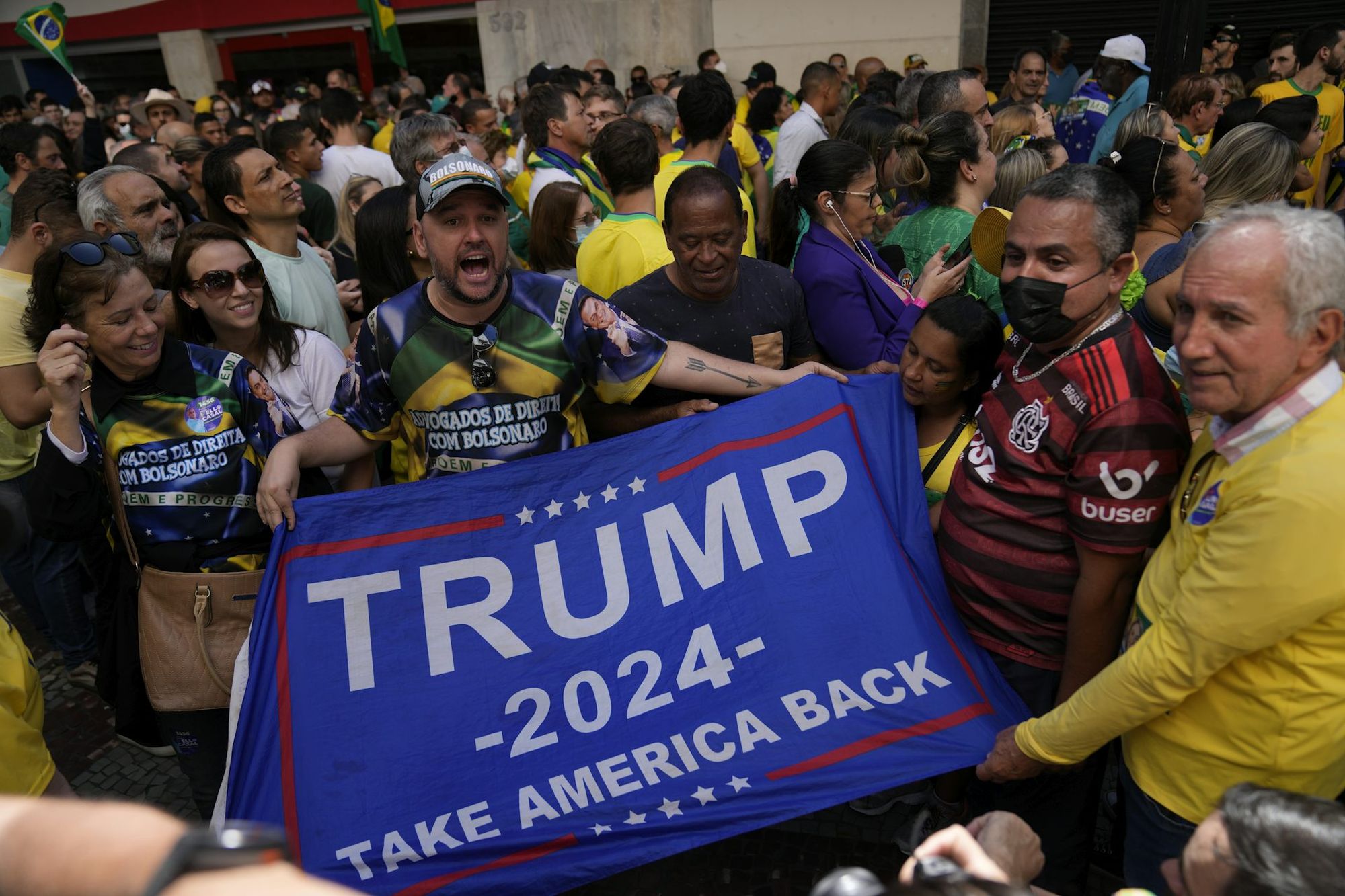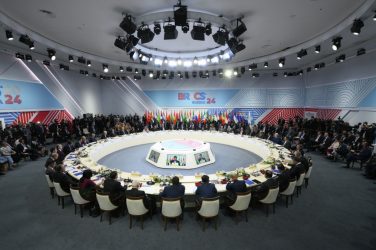In recent months, Brazilians have closely followed the US presidential campaign. Since 2016, whatever happens in American politics seems likely to unfold in Brazil. In many ways, the American political chasm reflects Brazil’s own political polarization.
Trump’s latest win provoked immediate reactions in Brazilian politics. Former President Jair Bolsonaro and his supporters are ecstatic because they believe that the political tide will once again turn in their favor – with a little help from the White House.
The Brazilian left, for its part, is doing an examination of conscience. After suffering a major blow in the municipal elections of October 2024, Luiz Inácio Lula da Silva (Lula) and his allies can no longer count on the US to promote their agendas at home and abroad.
The new US government will present Brazil with several challenges. It’s not just a question of recognizing the vitality of the global conservative wave. We now need to understand how the concrete decisions made by Trump will affect Brazilian politics – and how to respond to them.
Will Trumpism save Bolsonarism?
In October 2023, Brazil’s Superior Electoral Court barred Bolsonaro from running for public office for eight years due to accusations of abuse of political power in his bid for re-election. The court’s decision came as a shock to Bolsonarism, which was on the verge of losing momentum and electoral appeal.
Since then, pro-Bolsonaro congressmen began discussing with their pro-Trump colleagues how they could act together to reverse Bolsonaro’s ineligibility. Eduardo Bolsonaro, son of Jair, and other allies made official visits to Washington three times between November 2023 and May 2024.
The common narrative was that the Brazilian authorities were violating the fundamental rights of “conservative” activists and politicians. For the Republicans in the US, the framing of Lula’s Brazil as being on the verge of a dictatorship was useful to show what could happen to the US if the Democrats remained in office.
The cause of the far right gained even more momentum with the fight between Elon Musk and Brazil’s Supreme Court Justice Alexandre de Moraes. Musk’s criticism of censorship in Brazil energized Bolsonaro’s supporters, who saw a path to future sanctions against Brazilian authorities should Trump return to the White House.
Now Bolsonaro and his followers are convinced that the Trump administration, with Musk as its centerpiece, will help them return to power in Brazil. Eduardo Bolsonaro was at Mar-a-Lago celebrating Trump’s victory. In recent days, the former president has been giving interviews and writing op-eds as if it’s only a matter of time before he takes the presidency once again.
Is Trump about to take on Brazil?
Even if the White House considers sanctioning Brazil to put pressure on the authorities to allow Bolsonaro to run, there are other ways to help Trump’s staunchest ally. Through foreign policy, the US could harm Brazil and weaken the Lula government.
President Lula, of course, doesn’t want to antagonize Trump. Although he declared his support for Kamala Harris “as a safer bet for democracy”, Lula was quick to congratulate the Republican candidate on his victory and said he looked forward to a good working relationship between Brazil and the US.
Lula knows that Brazil is not a priority for Trump, but he is also aware that Bolsonaro’s promise of unconditional loyalty to the US president can be quite seductive.
Trump’s foreign policy could threaten Brazil in at least two ways. The first concerns tariffs. Protectionist policies could jeopardize exports of Brazilian industrial products to the US. If these policies slow down the Chinese economy, Brazil’s agribusiness sector will also find itself in difficulty.
In addition, the fear of high inflation in the US will keep interest rates high in both countries, leading to less foreign direct investment in Brazil and increasing the challenges for Lula to keep the Brazilian economy stable.
The second immediate threat has to do with Trump’s relationship with Argentina. Javier Milei has never hidden his antipathy towards Lula and promises to abandon long-standing commitments to Brazil, such as the South American trade bloc, Mercosur. A preferential alliance between the White House and Argentina will jeopardize Brazil’s efforts to drive South American integration.
On Wednesday 13th, Trump nominated Marco Rubio to be the next Secretary of State. Rubio is a hardliner, who recently called Lula a “far-left leader” and criticized the government’s decision to suspend the social network X in Brazil.
End of democracy in Brazil?
Times are tough for Brazil and the world – and they could become even more problematic from January next year. However, we can look at the glass half full and think of less apocalyptic ways forward for the Brazilian government.
The first task is to reinforce the basic institutional rules of Brazilian democracy. The list of possible criminal charges against Bolsonaro is long and involves planning a coup d’état, the most visible result of which was also an insurrection that took place on 8 January 2023 – and almost entirely inspired by the 6 January 2021 riots on Capitol Hill.
Despite all the enthusiasm among Brazil’s far right, there are no guarantees that Bolsonaro will be able to run for office – and that he won’t be convicted of crimes.
There may be pressure from the White House, but its effects will encounter political and legal limits. A recent failed attack on the Supreme Court building by a Bolsonaro supporter will almost certainly make any discussions on amnesty of the January 8 rioters (which could include a pardon to Bolsonaro) even murkier.
In addition, Brazil can capitalize on Trump’s isolationism by strengthening its leadership role on issues such as climate change, global governance reform and human rights. The current G20 presidency has allowed Brazil to find meaningful interlocutors and continue to push these agendas forward.
The tides may be turning, and the challenges are certainly increasing, but it is fundamentally up to the political actors to shape their own future. Are the Lula government and other defenders of democracy in Brazil up to the task?
Guilherme Casarões is a professor of political science at Escola de Administração de Empresas de São Paulo from Fundação Getúlio Vargas (FGV/EAESP)
This article was originally published in The Conversation. Read the original article here:
https://theconversation.com/extremism-interest-rates-and-tariffs-the-political-and-economic-challenges-the-trump-administration-will-impose-on-brazil-243784






